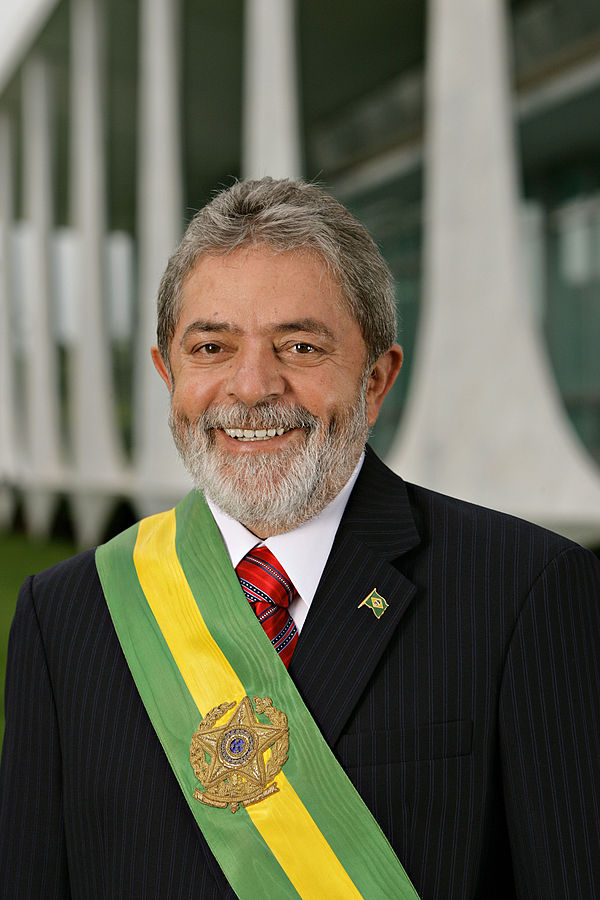
SAO BERNARDO DO CAMPO, Brazil — Former Brazilian President Luiz Inacio Lula da Silva’s defiance of a judge’s deadline to turn himself in and start serving a 12-year prison sentence for corruption has created a tense standoff with the ex-leader holed up with supporters in a union headquarters.
Da Silva, a towering figure in Brazilian politics who leads preference polls ahead of October’s presidential election, is expected to attend a Saturday morning Mass for his late wife to be held at the metallurgical union in the Sao Paulo suburb of Sao Bernardo do Campo.
Federal judge Sergio Moro had given the ex-president until Friday afternoon to present himself to police in Curitiba, about 260 miles (417 kilometres) southwest of Sao Bernardo do Campo.
But the deadline came and went with police reluctant to move into the union building given the thousands of da Silva’s supporters outside, making clashes a possibility. The metallurgical union is where the former president universally known as “Lula” got his start as a union organizer long ago.
“The intention is not to force compliance at any cost, but rather follow the order the best way possible, with tranquility and without a media show,” president of federal police Luis Antonio Boudens said in a statement.
Two sources close to da Silva told The Associated Press the former leader would not go to Curitiba, but instead was considering either waiting for police at the union or presenting himself in Sao Paulo on Saturday. They spoke on the condition of anonymity because they were not authorized to share internal deliberations being discussed.
Anna Julia Menezes Rodrigues, a specialist in criminal law at Braga Nascimento e Zilio, said da Silva’s defiance did not turn him into a fugitive. It just meant that it was now up to federal police to carry out the warrant, she said.
Thursday’s arrest warrant came hours after Brazil’s top court, the Supreme Federal Tribunal, voted 6-5 to deny a request by the former president to stay out of prison while he appealed a conviction that he contends was simply a way to keep him off the ballot in October’s election.
Last year, Moro convicted da Silva of trading favours with a construction company in exchange for the promise of a beachfront apartment. That conviction was upheld by an appeals court in January. The former president denies any wrongdoing in that case or in several other corruption cases that have yet to be tried.
However it happens, the jailing of da Silva will mark a colossal fall from grace for a man who rose to power against steep odds in one of the world’s most unequal countries.
Born in the hardscrabble northeast, da Silva rose through the ranks of the union in the country’s industrial south. In 1980, during the military dictatorship, da Silva was arrested in Sao Bernardo do Campo for organizing strikes. He would spend more than a month in jail.
After running for president several times, in 2002 da Silva finally won. He governed from 2003 to 2010, leaving office an international celebrity and with approval ratings in the high 80s.
Former U.S. President Barack Obama once called da Silva the “most popular politician on Earth.”
Since leaving office, things have steadily gotten worse for the leader, who has been charged in several corruption cases. He has always maintained his innocence while continuing to campaign across the country the past year. Despite his legal troubles, he leads preference polls to return to office — if by some chance he is allowed to run.
Like so much in a nation that has become deeply polarized, that da Silva would soon be behind bars was being interpreted differently by supporters and detractors.
“This has always been Lula: a crook and a radical who doesn’t respect the law,” said Edson Soares, a 70-year-old retiree at a shopping mall near the union building. “It will feel so much better to have him in prison.”
Antonio Ferreira dos Santos, a 43-year-old bricklayer who was keeping vigil outside the union, had a different take.
“Lula is one of us. He knows what it is like to have a tough life and loves the poor more than the rich,” said dos Santos.
Workers’ Party leaders insist that da Silva, 72, would still be the party’s candidate in October. Technically, beginning to serve his sentence would not keep da Silva off the ballot. In August, the country’s top electoral court makes final decisions about candidacies. It was expected to deny da Silva’s candidacy under Brazil’s “clean slate” law, which disqualifies people who have had criminal convictions upheld. However, da Silva could appeal such a decision, though doing so from jail would be more complicated.
Da Silva is the latest of many high-profile people to be ensnared in possibly the largest corruption scandal in Latin American history. Over the last four years, Brazilians have experienced near weekly police operations and arrests of the elite, from top politicians to businessmen like former Odebrecht CEO Marcelo Odebrecht.
Investigators uncovered a major scheme in which construction companies essentially formed a cartel that doled out inflated contracts from state oil company Petrobras, paying billions in kickbacks to politicians and businessmen.